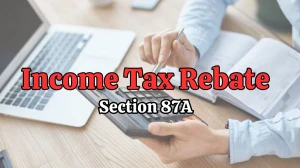
What is Form 1120? When is Form 1120 Due Date? When is 1120 Extension Due Date 2023?
Form 1120 is a vital IRS tax document for U.S. corporations, facilitating the reporting of income, deductions, and computation of corporate income tax liabilities.
Updated Dec 23, 2023
On This Page
What is Form 1120?
Form 1120-S, known as the U.S. Income Tax Return for an S Corporation, is a crucial tax document used to report comprehensive financial information to the Internal Revenue Service (IRS) for businesses registered as S corporations. Serving as the annual tax return for such entities, it encompasses details on income, gains, losses, credits, deductions, and more.
This form, considered the tax return of an S corporation, must be filed by the 15th day of the third month following the corporation's tax year. Accompanying the form, Schedule K-1 provides a breakdown of individual shareholders and the corresponding allocation of profit and loss to each. Form 1120-S is the conduit through which S corporations communicate vital financial data to the IRS, and it can be submitted either electronically or by mail.
When is the Form 1120 Due Date?
The due date for Form 1120 (or Form 7004 for an extension) is the 15th day of the 4th month following the conclusion of the corporation's tax year. However, for corporations with a fiscal tax year ending on June 30 or a short tax year treated as if it concluded on June 30, the deadline is moved to the 15th day of the 3rd month after the tax year concludes.
Form 7004, used for requesting an automatic extension, typically grants an additional six months, but corporations meeting the June 30 criteria can qualify for a seven-month extension. Both forms are crucial in determining filing deadlines and seeking extensions, taking into account the unique circumstances of the corporation's financial period.
When is 1120 Extension Due Date 2023?
For the tax year 2023, the extended due date for filing Form 1120, U.S. Corporation Income Tax Return, for C corporations is October 16, 2023. This extension provides C corporations with additional time to compile and accurately report their financial data, ensuring compliance with tax regulations and the thorough completion of Form 1120.
The extended due date also applies to sole proprietorships that have successfully received a tax extension, allowing them the necessary time to organize their financial records and fulfill their tax obligations in line with IRS guidelines. Businesses, both C corporations and eligible sole proprietorships, can leverage this extension to ensure comprehensive, precise, and compliant tax return filings.
Who Files Tax Form 1120?
All domestic corporations are required to submit tax Form 1120, even if their income is not subject to taxation. Exceptions to this rule are corporations exempt under section 501 of the Internal Revenue Code, as well as corporations undergoing bankruptcy, which are still obligated to file Form 1120.
The following entities are mandated to file tax Form 1120:
Businesses Electing Corporate Taxation:
Companies that have opted for corporate taxation must file Form 1120. These entities are also required to complete Form 8832 and provide a copy of it alongside Form 1120.
Limited Liability Companies (LLCs):
If an LLC has chosen to be taxed as a corporation, it must file Form 1120. However, partnership LLCs file Form 1065, while single-member LLCs often report their taxes through the personal federal tax return of the owner.
Farming Corporations:
Corporations engaged in farming activities must utilize Form 1120 to report their financial gains or losses.
Corporations with FASIT Ownership:
Corporations holding an ownership interest in a Financial Asset Securitization Investment Trust (FASIT) are obligated to file Form 1120.
Foreign-Owned Domestic Disregarded Entities:
When a foreign entity or corporation possesses full ownership (100 percent) of a domestic disregarded entity (DE), the domestic DE is treated as distinct from its foreign owner. In such cases, the foreign entity or corporation is required to submit Form 1120 and attach Form 5472.
Certain types of corporations may also need to complete supplementary documents or schedules. For instance, Form 1120 (Schedule N) pertains to foreign operations of U.S. corporations, while Form 1120 (Schedule D) addresses capital gains and losses.
Smaller corporations may not need to concern themselves with these additional forms. To access these forms, individuals can search for "Form 1120" using the IRS' Forms and Publications tool.
Where Does File an 1120 Tax Form?
Corporations must file their income tax return, including Form 1120, by the fifteenth day of the fourth month after the end of their tax year. Newly established corporations follow the same deadline regardless of the tax year's duration.
For corporations with a fiscal year ending on June 30, the deadline is the fifteenth day of the third month after their tax year concludes. If the due date falls on a Saturday, Sunday, or legal holiday, the deadline extends to the next business day.
What Are the Pros and Cons of Form 1120?
Form 1120, the U.S. Corporation Income Tax Return, is a vital document that corporations use to report their financial information to the Internal Revenue Service (IRS). This tax form ensures legal compliance, separates corporate and shareholder finances, and offers opportunities for deductible expenses.
While providing flexibility in tax planning, it also comes with complexities, potential for higher tax rates, and considerations of double taxation, making it essential for corporations to weigh its pros and cons carefully.
Pros and Cons of Form 1120
- Filing Form 1120 ensures that your corporation adheres to the legal requirement of reporting its income, deductions, and other financial details to the Internal Revenue Service (IRS).
- Form 1120 helps maintain a clear distinction between the corporation's financial activities and those of its shareholders, preserving the legal separation between the business entity and its owners.
- Corporations can claim a wide range of business-related expenses as deductions on Form 1120, potentially reducing their taxable income and overall tax liability.
- Form 1120 allows for certain tax planning strategies, such as optimizing deductions and credits, to minimize the corporation's tax burden and maximize its after-tax income.
Pros and Cons of Form 1120
- Form 1120 can be intricate and time-consuming to complete, especially for larger corporations with numerous transactions, leading to potential errors if not carefully managed.
- Corporations are subject to potentially higher tax rates compared to individual tax rates, which could result in a larger tax liability.
- Depending on the circumstances, corporations may face double taxation—first at the corporate level and then again when shareholders receive dividends or capital gains.
- Some deductions available to individuals are not applicable to corporations, which could result in missed opportunities to reduce the tax burden.
What is Form 1120-FAQs
1. What is Form 1120?
Form 1120 is an IRS tax form used by U.S. corporations to report their income, deductions, and other financial information for the purpose of calculating their corporate income tax liability.
2. Who is required to file Form 1120?
Most U.S. corporations are required to file Form 1120, including those with taxable income as well as those exempt under certain IRS provisions. Exemptions include S corporations and specific organizations listed in IRS guidelines.
3. When is the deadline for filing Form 1120?
The deadline for filing Form 1120 is generally the 15th day of the 4th month after the end of the corporation's tax year. However, there are variations based on factors like fiscal year-end dates and extensions.
4. Are there any exceptions to filing Form 1120?
Yes, certain entities, such as S corporations and corporations with specific ownership structures, are exempt from filing Form 1120. These entities follow different tax reporting procedures outlined by the IRS.
5. How does Form 1120 impact tax liability?
Form 1120 serves as the basis for calculating a corporation's income tax liability. By accurately reporting income, deductions, and credits, corporations can determine their taxable income and the corresponding amount of taxes owed to the IRS.




